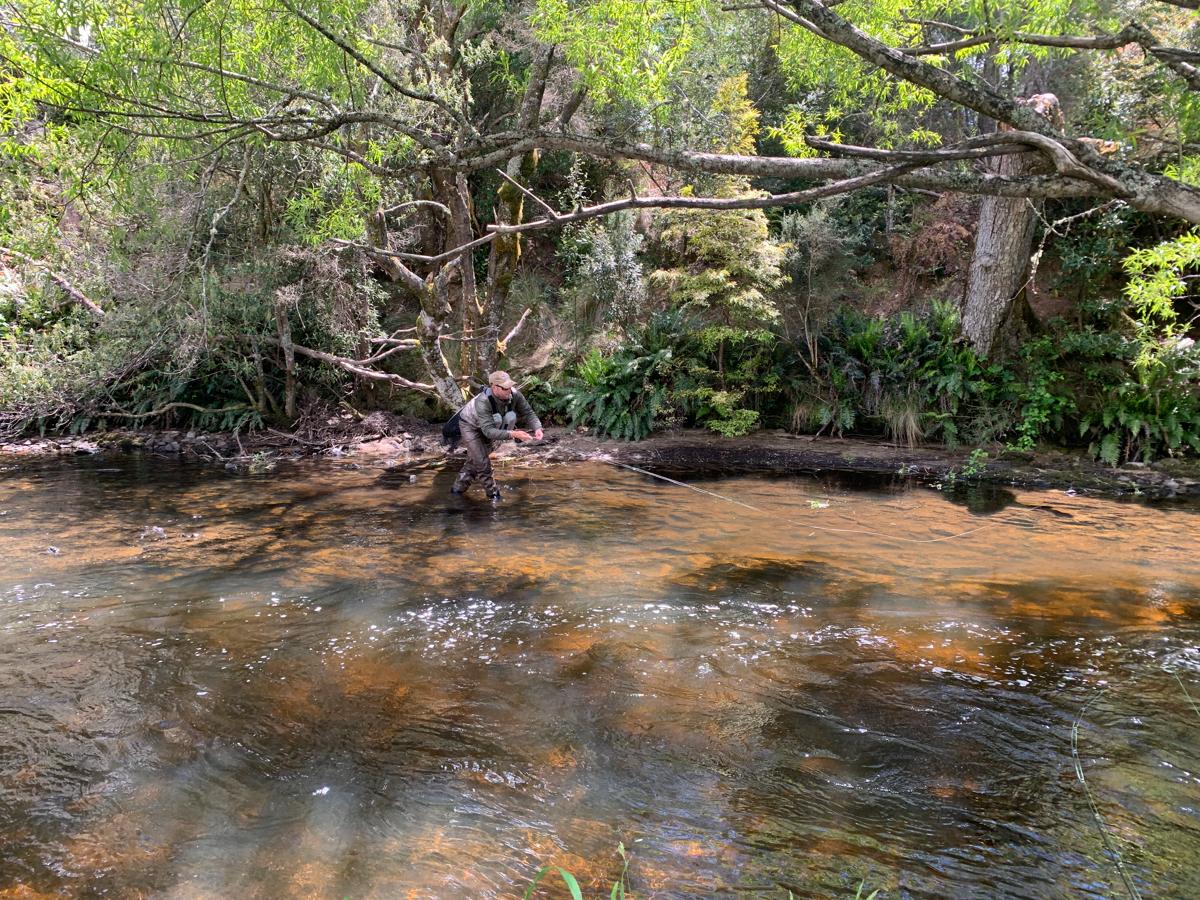
8 minute read
A World of Champions
Few things in this world are more thrilling than representing one’s country. I know a long-time dream of mine was to be the starting flyhalf for the Springboks in a Rugby World Cup final. Sadly, I am undersized and lack the basic skills to fulfil that dream.
I have however had the honour of representing our wonderful country at the passed World Fly Fishing Championships hosted in Tasmania, and wow was it special! Every second of the experience is special. The travel, the fishing, the competition and mostly the camaraderie of the team. Imagine stepping onto a bus with thirty of the world’s best fly fisherman, everyone sitting quietly focused on the task at hand, arriving at a piece of water you have never seen before and having to assess how you are going to go about your business. Then picture competing head-to-head for three hours against the best; every fish swaying and changing the leaderboard. Frankly, the whole experience is just exhilarating!
Advertisement
The Championship was hosted in Tasmania, Australia, from the 30 th of November to the 8 th of December 2019. The competition was fished over five sessions, one session per day, in five separate locations, allowing competitors the opportunity to fish the perfect fishing window on both the lakes and rivers.
The venues used were Penstock Lagoon, Meander River, Woods Lake, Mersey River and Little Pine Lagoon (which featured in the 1988 World Fly Fishing championships). Each angler is assigned a three hour session where the length of their trout landed are measured and scored by officials. The fish’s lengths are scored in total millimeters. Anglers from all over the world compete against each other on an individual and team basis. This means that you are constantly fighting for every inch on every fish. This competitive atmosphere is what sets the Fly-Fishing World Championships apart from any other.
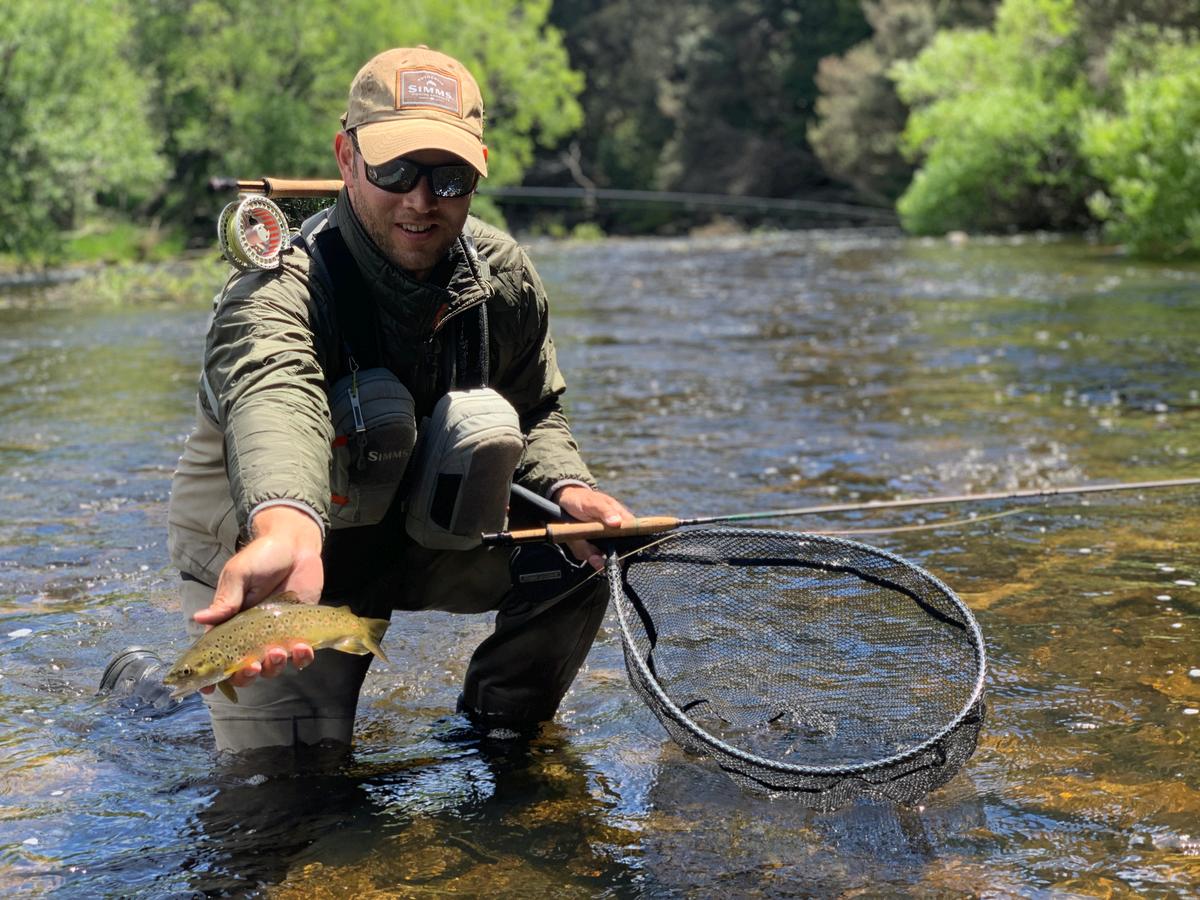
Tasmania itself is a land lost in time in every way. The towns feel drenched in an exotic history long forgotten, the landscape moulded by the tough weather conditions and the people friendly to their core. A drive through Launceston reminds one of a better way of life, one with less stress and a whole lot more focus on lifestyle enjoyment.
As you exit “city life” you begin to feel the Wildness that Tasmania has to offer. Driving is a new experience as every animal is always ready to leap into the road from behind some shrub. This made driving complicated and something we did not do at night. Walking brings its own challenges with the abundance of snake and spider life. Never before have I ever seen so many snakes, and not any old snakes but some of the most venomous creatures the world has to offer. Yip, walking your river section becomes a life and death exercise with these critters around just adding to the experience of fishing this untouched part of the world. I can certainly say Tasmania is like no place I have ever visited.
One thing the country doesn’t lack is an abundance of water. Everywhere you look one can see rivers and lakes, each of these waters teaming with wild brown trout. These fish are not indigenous to the land and were introduced by British settlers in the 1850’s. The climate and landscape are perfectly architected for the survival and growth of large brown specimens, making Tasmania a dream destination for any trout fisherman. It is common for 10lb tout to be found in rivers and lakes in Tasmania. Taking a drive along one of the main interstates allows you the opportunity to view lake after lake after river after lake and river again - you get the point! The waters are endless and untouched, providing the perfect backdrop for some world-class trout angling.
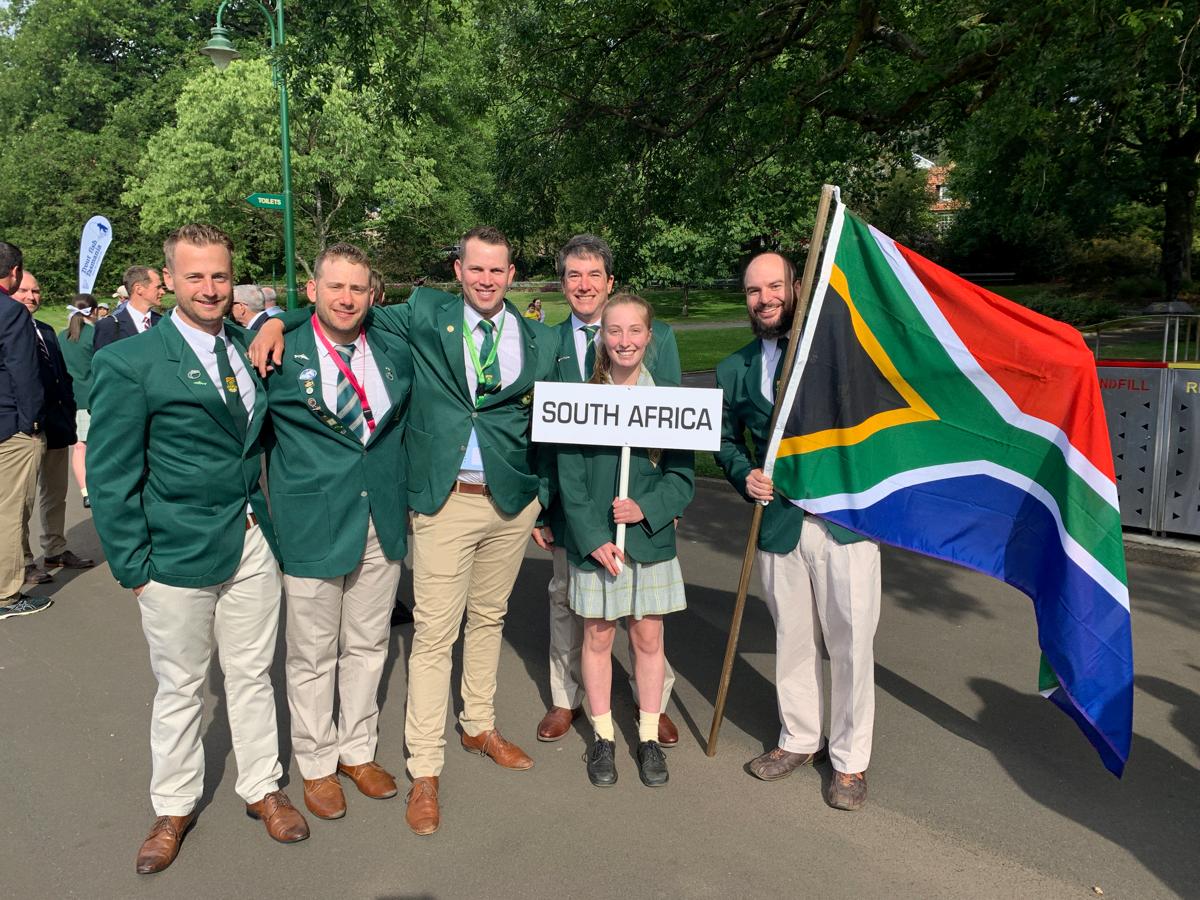
As a team we spent eight days practicing both rivers and still waters in the Highlands region of Miena. Describing Miena is difficult but I will do my best. Imagine a lake district high up in the mountains surrounded by rusty old fishing huts scattered along the banks of each fishery. No shops, no luxuries, no technology, very little cell signal, just the stories of a “good days” fishing around the evening fireplace

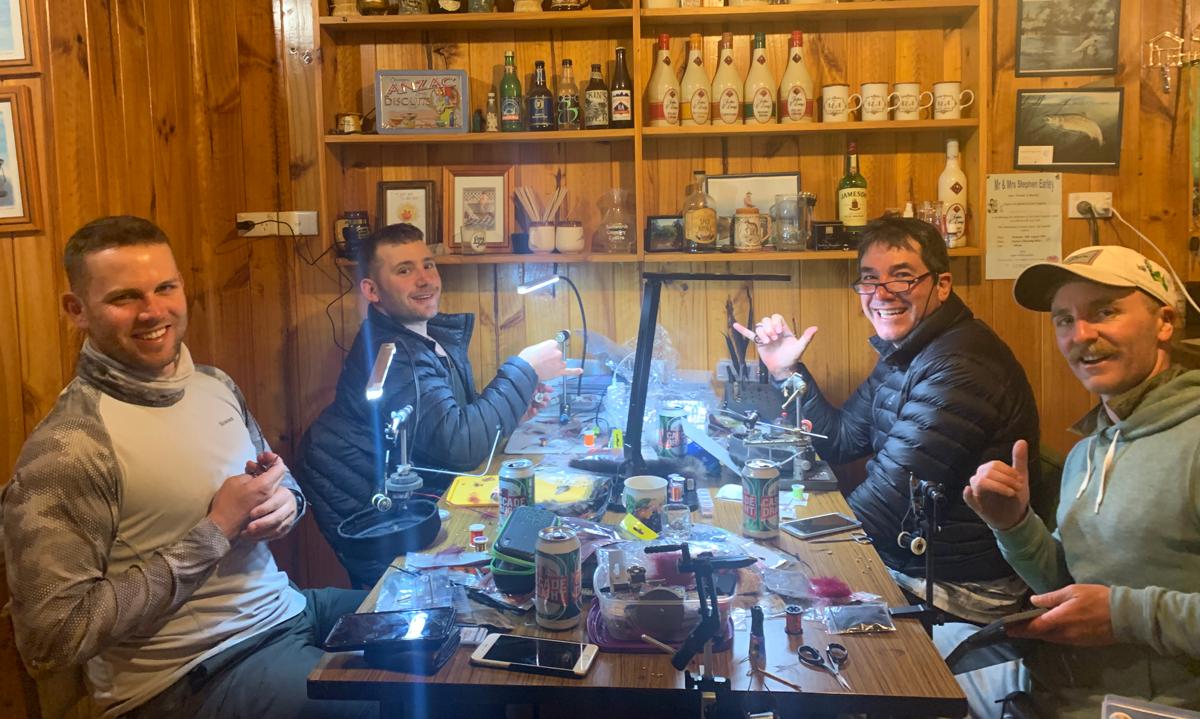
Along the banks of the water the animals watch your every move and even more scary is when they decide to join you in the water. On more than one occasion I found myself taking evasive action from a tiger snake that decided I was a tree in the water and a good place to rest for a bit. The weather and wildlife certainly added a level of complexity while fishing the championship however they also took you back to another time, a time away from the hustle and bustle of daily life, a time away from technology and deadlines, when the world was wild and untouched, ready to be explored.
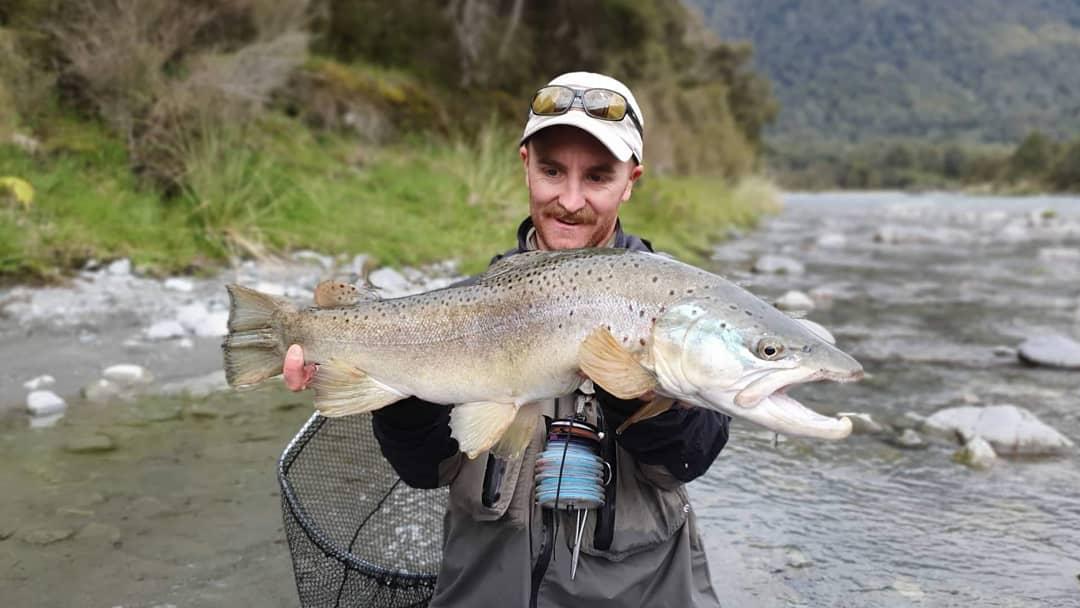
Our guide, Stewart, was a character. We found it difficult to take him seriously at first considering that the moustache he was sporting could only remind you of a 1940’s South African “speedkop”. It was every bit as wild and untamed as the man himself. His dress code was uncomplicated - most days sporting a pair of “thongs”, shorts and an old fishing cap. Shirts were often optional, even in the cold. The doctor’s (yes, he is in fact a paediatrician) scruffy exterior did not sum up the man, he was a complete gentleman, sharp as a tack, always ready to share his Australian fishing knowledge and show us a trick or two.
As a team we spent many hours on various lakes perfecting a new style of still water nymphing designed to be used when the wind is up. This technique served us well in the competition and while testing it back home more recently I have realised that it is a serious weapon to have in hand for those blustery days on South African water. More to come on this technique in the future.
The five day competition itself was plagued with “Weather from Hell”. Every session anglers found themselves fighting below-freezing temperatures, winds up to 80kms per hour, hail, rain, snow and fog.
At times sitting on a boat was unbearable with little to no feeling in both hands. Feeling the tug of a trout was often impossible, never mind fighting it to the net. On many occasions nets were blown clean off boats by small wind tornados, leaving competitors in a very difficult position without a way to land fish.
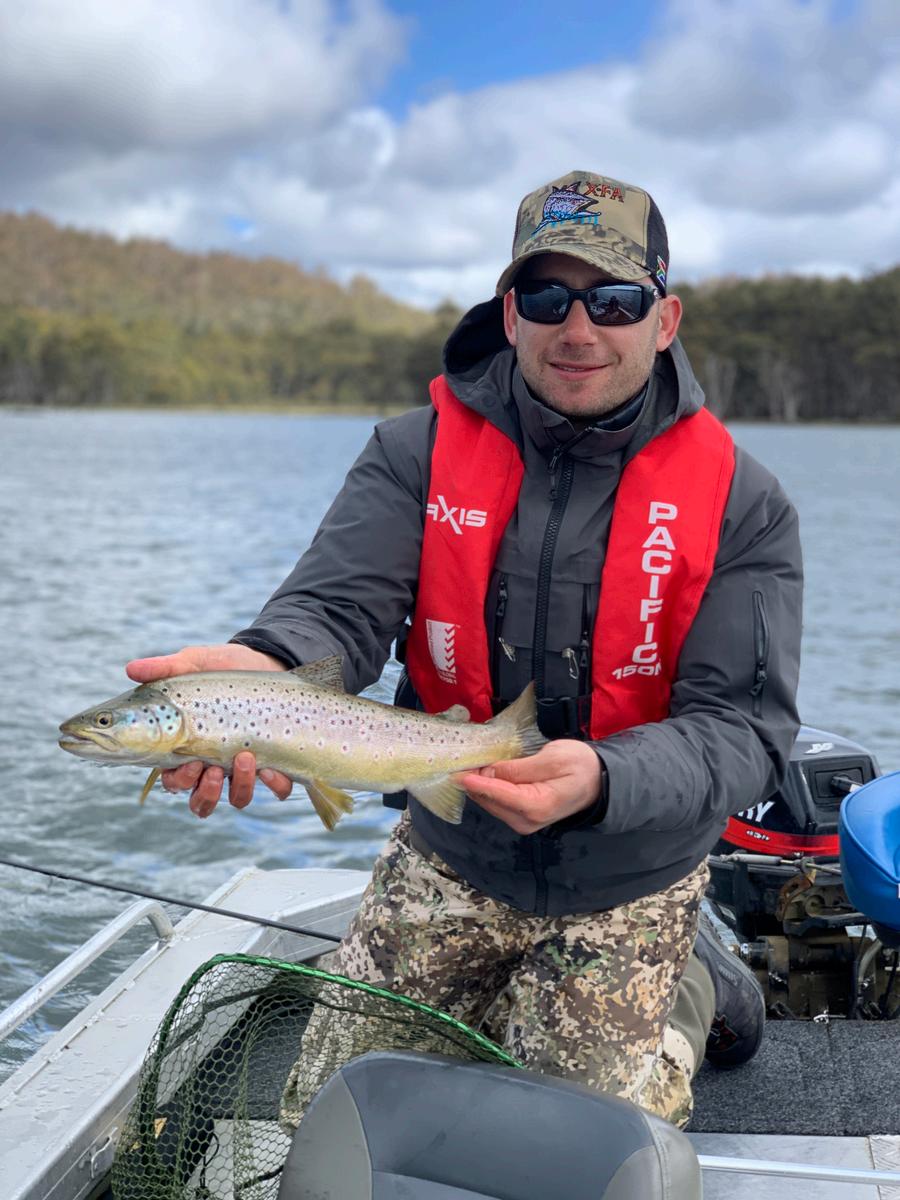


This year the South African team found themselves in medal contention right up to the last session with only a handful of points separating the top ten teams going into the last day. As a collective we felt it only right to throw personal positioning out of the window and chase risks on the last day for the betterment of the team.
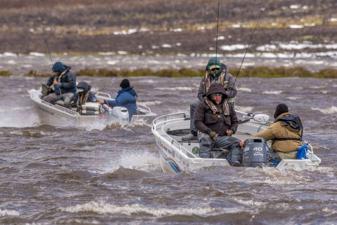
The night before the final session various plans were hatched to be executed on the following day. Each of these plans were risky in that they did not follow the standard that most anglers would use on a final day of competition, however as a collective we needed points and a chance at a medal required some out of the box thinking.
Sadly for the team our tactics did not pay off and we fell short of the intended goal. But as a team we grew. For the first time in a long time a belief has been born that European anglers are not invincible. As a collective we can see that the gap is closing and our abilities as a country are catching up with the top nations.
A massive shout out must go to Daniel Factor for his stellar performance throughout the tournament finishing 11 th overall and proving once again that as South Africans we can excel on the big stage! The gap between South African and international anglers is closing and with a bit more time and experience we will start to find ourselves consistently in medal contention.
As a country our skills and abilities are showing at an international level, all that lacks are the enormous amounts of time other competitors spend on the water. The experience gained through these thousands of fishing hours is all that sets us apart from the rest of the world. This understanding and belief places us in good stead for the future - watch this space…
The final team results finished with France, Czech Republic and Spain taking up the top three spots in that order. Because of a few tough results on the final day South Africa found themselves finishing in 11 th position with very few points separating them from a top ten result. Individual gold was one by Howard Croston representing England in his 16 th World Championship, proving that it’s never to late to be on top of the world. David Garcia Ferraras and Kristian Sveda from Spain and Slovakia rounded out silver and bronze positions respectably.
Next year the Championship moves to Finland and the Protea boys are excited to create a stir on the world stage once again.











